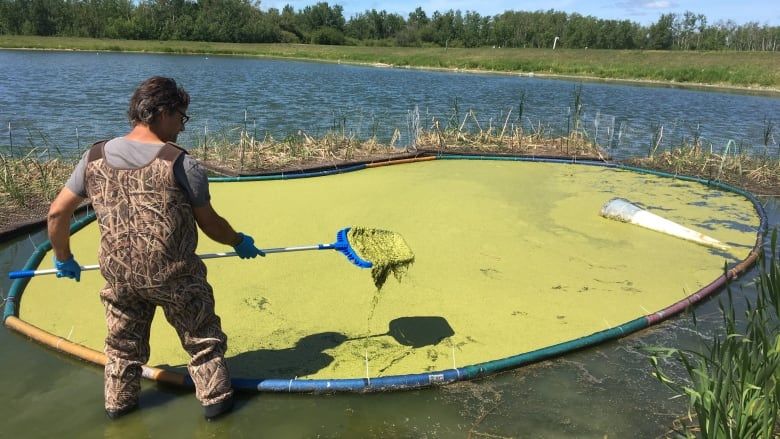How Duckweed Might be a Solution to Pollution in Lake Winnipeg
Published on by Water Network Research, Official research team of The Water Network in Social
A group of Manitoba scientists is looking into whether a tiny native water plant could help reduce toxic algae blooms on Lake Winnipeg.

Researchers with the International Institute for Sustainable Development are studying how well duckweed can suck phosphorus out of the Dunnottar, Man., wastewater lagoon. (Image by Richard Grosshans, found on CBC)
As the City of Winnipeg grapples with the massive task of cutting off the flow of phosphorus from the North End Sewage Treatment Plan t, the scientists hope to show cost-effective green technology can help treat the many smaller sources of the algae-feeding nutrients.
Earlier this week, research scientist Richard Grosshans and his team from the International Institute for Sustainable Development harvested 33 kilograms of duckweed they had grown in the sewage lagoon at Dunnottar, Man., a village of 760 people, 65 kilometres north of Winnipeg on the west shore of Lake Winnipeg.
The tiny leafy plant is thirsty for phosphorus and nitrogen, and Grosshans wants to see how well duckweed and floating islands of local marsh plants work to clean the water.
Read the thorough report on this research on CBC.
Media
Taxonomy
- Algaecides
- Research
- Environment
- Algae
- Biogeochemistry
- Aquatic Environment
- Algae Treatment
- Nitrogen
- Environmental DNA (eDNA)
- Phosphorus Recovery